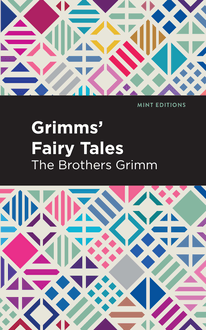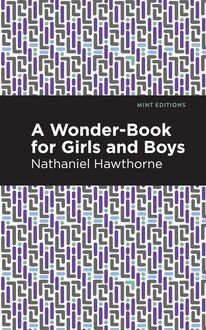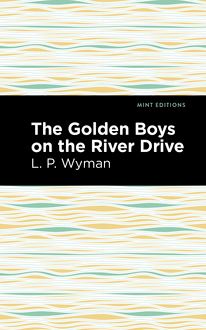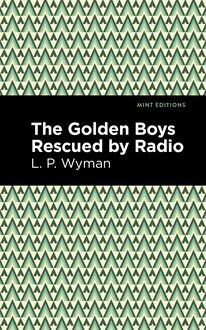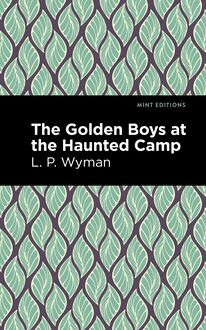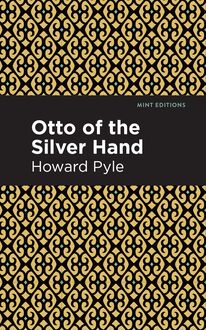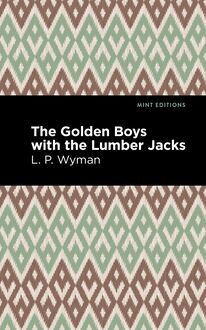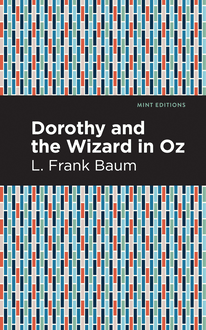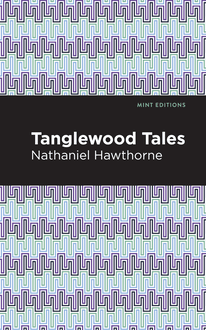-
 Univers
Univers
-
 Ebooks
Ebooks
-
 Livres audio
Livres audio
-
 Presse
Presse
-
 Podcasts
Podcasts
-
 BD
BD
-
 Documents
Documents
-
- Cours
- Révisions
- Ressources pédagogiques
- Sciences de l’éducation
- Manuels scolaires
- Langues
- Travaux de classe
- Annales de BEP
- Etudes supérieures
- Maternelle et primaire
- Fiches de lecture
- Orientation scolaire
- Méthodologie
- Corrigés de devoir
- Annales d’examens et concours
- Annales du bac
- Annales du brevet
- Rapports de stage
La lecture à portée de main

Vous pourrez modifier la taille du texte de cet ouvrage
Découvre YouScribe en t'inscrivant gratuitement
Je m'inscrisDécouvre YouScribe en t'inscrivant gratuitement
Je m'inscrisEn savoir plus
Vous pourrez modifier la taille du texte de cet ouvrage
En savoir plus

Description
The Boy Scout’s Book of Campfire Stories (1921) is a collection of stories for children by some of twentieth-century America’s most popular authors. Published for the Boy Scouts of America, the book was intended to entertain Boy Scouts and their leaders on camping trips as well as to instill in them a passion for adventure.
In “Silverhorns,” written by Henry van Dyke, an experienced hunter named Dudley Hemenway shares stories with a Scotsman while waiting for their train to depart. Over cigars, they talk about moose hunting, and describe their desire to catch the elusive silverhorn. Zane Grey’s “The Wild-Horse Hunter,” a Western tale, begins with three hunters making camp in the wide-open wilderness. As night falls, they start a fire by a stream and recount their difficult day and their struggle to capture the legendary Wildfire. “The Hydrophobic Skunk” is a humorous tale by Irvin S. Cobb about a rare creature said to live at the bottom of the Grand Canyon. Jack London’s “That Spot,” another story of wit and humor, follows a group of prospectors during the Klondike Gold Rush who try and fail to rid themselves of a stray dog that joins their expedition. The Boy Scout’s Book of Campfire Stories is a collection that captures the essence of storytelling—adventure, humor, horror, and wisdom—for children and adults alike.
With a beautifully designed cover and professionally typeset manuscript, this edition of The Boy Scout’s Book of Campfire Stories is a classic of American literature reimagined for modern readers.
Sujets
Informations
| Publié par | Mint Editions |
| Date de parution | 19 janvier 2021 |
| Nombre de lectures | 0 |
| EAN13 | 9781513275260 |
| Langue | English |
| Poids de l'ouvrage | 2 Mo |
Informations légales : prix de location à la page 0,0500€. Cette information est donnée uniquement à titre indicatif conformément à la législation en vigueur.
Extrait
The Boy Scouts Book of Campfire Stories
Various
The Boy Scouts Book of Campfire Stories was first published in 1921.
This edition published by Mint Editions 2020.
ISBN 9781513270265 | E-ISBN 9781513275260
Published by Mint Editions®
minteditionbooks.com
Publishing Director: Jennifer Newens
Design & Production: Rachel Lopez Metzger
Project Manager: Micaela Clark
Typesetting: Westchester Publishing Services
C ONTENTS B Y W AY OF I NTRODUCTION I. S ILVERHORNS Henry van Dyke II. W ILD -H ORSE H UNTER Zane Grey III. T HE H YDROPHOBIC S KUNK Irvin S. Cobb IV. T HE O LE V IRGINIA Stewart Edward White V. T HE W EIGHT OF O BLIGATION Rex Beach VI. T HAT S POT Jack London VII. W HEN L INCOLN L ICKED A B ULLY Irving Bacheller VIII. T HE E ND OF THE T RAIL Clarence E. Mulford IX. D EY A IN ’ T N O G HOSTS Ellis Parker Butler X. T HE N IGHT O PERATOR Frank L. Packard XI. C HRISTMAS E VE IN A L UMBER C AMP Ralph Connor XII. T HE S TORY T HAT THE K EG T OLD M E Adirondack (W. H. H.) Murray
B Y W AY OF I NTRODUCTION
The campfire for ages has been the place of council and friendship and story-telling. The mystic glow of the fire quickens the mind, warms the heart, awakens memories of happy, glowing tales that fairly leap to the lips. The Boy Scouts of America has incorporated the “campfire” in its program for council and friendship and story-telling. In one volume, the Boy Scouts Book of Campfire Stories makes available to scoutmasters and other leaders a goodly number of stories worthy of their attention, and when well told likely to arrest and hold the interest of boys in their early teens, when “stirs the blood—to bubble in the veins.”
At this time, when the boy is growing so rapidly in brain and body, he can have no better teacher than some mighty woodsman. Now should be presented to him stirring stories of the adventurous lives of men who live in and love the out-of-doors. Says Professor George Walter Fiske: “Let him emulate savage woodcraft; the woodsman’s keen, practiced vision; his steadiness of nerve; his contempt for pain, hardship and the weather; his power of endurance, his observation and heightened senses; his delight in out-of-door sports and joys and unfettered happiness with untroubled sleep under the stars; his calmness, self-control, emotional steadiness; his utter faithfulness in friendships; his honesty, his personal bravery.”
I
S ILVERHORNS 1
By Henry van Dyke
The railway station of Bathurst, New Brunswick, did not look particularly merry at two o’clock of a late September morning. There was an easterly haze driving in from the Baie des Chaleurs and the darkness was so saturated with chilly moisture that an honest downpour of rain would have been a relief. Two or three depressed and somnolent travelers yawned in the waiting room, which smelled horribly of smoky lamps. The telegraph instrument in the ticket office clicked spasmodically for a minute, and then relapsed into a gloomy silence. The imperturbable station master was tipped back against the wall in a wooden armchair, with his feet on the table, and his mind sunk in an old Christmas number of the Cowboy Magazine . The express agent, in the baggage-room, was going over his last week’s waybills and accounts by the light of a lantern, trying to locate an error, and sighing profanely to himself as he failed to find it. A wooden trunk tied with rope, a couple of dingy canvas bags, a long box marked “Fresh Fish! Rush!” and two large leather portmanteaus with brass fittings were piled on the luggage truck at the far end of the platform; and beside the door of the waiting room, sheltered by the overhanging eaves, was a neat traveling bag, with a gun case and a rod case leaning against the wall. The wet rails glittered dimly northward and southward away into the night. A few blurred lights glimmered from the village across the bridge.
Dudley Hemenway had observed all these features of the landscape with silent dissatisfaction, as he smoked steadily up and down the platform, waiting for the Maritime Express. It is usually irritating to arrive at the station on time for a train on the Intercolonial Railway. The arrangement is seldom mutual; and sometimes yesterday’s train does not come along until to-morrow afternoon. Moreover, Hemenway was inwardly discontented with the fact that he was coming out of the woods instead of going in. “Coming out” always made him a little unhappy, whether his expedition had been successful or not. He did not like the thought that it was all over; and he had the very bad habit, at such times, of looking ahead and computing the slowly lessening number of chances that were left to him.
“Sixty odd years—I may get to be that old and keep my shooting sight,” he said to himself. “That would give me a couple of dozen more camping trips. It’s a short allowance. I wonder if any of them will be more lucky than this one. This makes the seventh year I’ve tried to get a moose; and the odd trick has gone against me every time.”
He tossed away the end of his cigar, which made a little trail of sparks as it rolled along the sopping platform, and turned to look in through the window of the ticket office. Something in the agent’s attitude of literary absorption aggravated him. He went round to the door and opened it.
“Don’t you know or care when this train is coming?”
“Nope,” said the man placidly.
“Well, when? What’s the matter with her? When is she due?”
“Doo twenty minits ago,” said the man. “Forty minits late down to Moocastle. Git here quatter to three, ef nothin’ more happens.”
“But what has happened? What’s wrong with the beastly old road, anyhow?”
“Freight car skipped the track,” said the man, “up to Charlo. Everythin’ hung up an’ kinder goin’ slow till they git the line clear. Dunno nothin’ more.”
With this conclusive statement the agent seemed to disclaim all responsibility for the future of impatient travelers, and dropped his mind back into the magazine again. Hemenway lit another cigar and went into the baggage room to smoke with the expressman. It was nearly three o’clock when they heard the far-off shriek of the whistle sounding up from the south; then, after an interval, the puffing of the engine on the upgrade; then the faint ringing of the rails, the increasing clatter of the train, and the blazing headlight of the locomotive swept slowly through the darkness, past the platform. The engineer was leaning on one arm, with his head out of the cab window, and Hemenway nodded as he passed and hurried into the ticket office, where the ticktack of a conversation by telegraph was soon under way. The black porter of the Pullman car was looking out from the vestibule, and when he saw Hemenway his sleepy face broadened into a grin reminiscent of many generous tips.
“Howdy, Mr. Hennigray,” he cried; “glad to see yo’ ag’in, sah! I got yo’ section all right, sah! Lemme take yo’ things, sah! Train gwine to stop hy’eh fo’ some time yet, I reckon.”
“Well, Charles,” said Hemenway, “you take my things and put them in the car. Careful with that gun now! The Lord only knows how much time this train’s going to lose. I’m going ahead to see the engineer.”
Angus McLeod was a grizzle-bearded Scotchman who had run a locomotive on the Intercolonial ever since the road was cut through the woods from New Brunswick to Quebec. Every one who traveled often on that line knew him, and all who knew him well enough to get below his rough crust, liked him for his big heart.
“Hallo, McLeod,” said Hemenway as he came up through the darkness, “is that you?”
“It’s nane else,” answered the engineer as he stepped down from his cab and shook hands warmly. “Hoo are ye, Dud, an’ whaur hae ye been murderin’ the innocent beasties noo? Hae ye kilt yer moose yet? Ye’ve been chasin’ him these mony years.”
“Not much murdering,” replied Hemenway. “I had a queer trip this time—away up the Nepisiguit, with old McDonald. You know him, don’t you?”
“Fine do I ken Rob McDonald, an’ a guid mon he is. Hoo was it that ye couldna slaughter stacks o’ moose wi’ him to help ye? Did ye see nane at all?”
“Plenty, and one with the biggest horns in the world! But that’s a long story, and there’s no time to tell it now.”
“Time to burrn, Dud, nae fear o’ it! ’Twill be an hour afore the line’s clear to Charlo an’ they lat us oot o’ this. Come awa’ up into the cab, mon, an’ tell us yer tale. ’Tis couthy an’ warm in the cab, an’ I’m willin’ to leesten to yer bluidy advaintures.”
So the two men clambered up into the engineer’s seat. Hemenway gave McLeod his longest and strongest cigar, and filled his own briar-wood pipe. The rain was now pattering gently on the roof of the cab. The engine hissed and sizzled patiently in the darkness. The fragrant smoke curled steadily from the glowing tip of the cigar; but the pipe went out half a dozen times while Hemenway was telling the story of Silverhorns.
“We went up the river to the big rock, just below Indian Falls. There we made our main camp, intending to hunt on Forty-two Mile Brook. There’s quite a snarl of ponds and bogs at the head of it, and some burned hills over to the west, and it’s very good moose country.
“But some other party had been there before us, and we saw nothing on the ponds, except two cow moose and a calf. Coming out the next morning we got a fine deer on the old wood road—a beautiful head. But I have plenty of deer heads already.”
“Bonny creature!” said McLeod. “An’ what did ye do wi’ it, when ye had murdered it?”
“Ate it, of course. I gave the head to Billy Boucher, the cook. He said he could get ten dollars for it. The next evening we went to one of the ponds again, and Injun Pete tried to ‘call’ a moose for me. But it was no good. McDonald was disgusted with Pete’s calling; said it sounded like the bray of a wild ass of the wilderness. So the next day we gave up calling and traveled the woods over toward the burned
Attention
En entrant sur cette page, vous certifiez :
- 1. avoir atteint l'âge légal de majorité de votre pays de résidence.
- 2. avoir pris connaissance du caractère érotique de ce document.
- 3. vous engager à ne pas diffuser le contenu de ce document.
- 4. consulter ce document à titre purement personnel en n'impliquant aucune société ou organisme d'État.
- 5. vous engager à mettre en oeuvre tous les moyens existants à ce jour pour empêcher n'importe quel mineur d'accéder à ce document.
- 6. déclarer n'être choqué(e) par aucun type de sexualité.
YouScribe ne pourra pas être tenu responsable en cas de non-respect des points précédemment énumérés. Bonne lecture !
-
 Univers
Univers
-
 Ebooks
Ebooks
-
 Livres audio
Livres audio
-
 Presse
Presse
-
 Podcasts
Podcasts
-
 BD
BD
-
 Documents
Documents
-
Jeunesse
-
Littérature
-
Ressources professionnelles
-
Santé et bien-être
-
Savoirs
-
Education
-
Loisirs et hobbies
-
Art, musique et cinéma
-
Actualité et débat de société
-
Jeunesse
-
Littérature
-
Ressources professionnelles
-
Santé et bien-être
-
Savoirs
-
Education
-
Loisirs et hobbies
-
Art, musique et cinéma
-
Actualité et débat de société
-
Actualités
-
Lifestyle
-
Presse jeunesse
-
Presse professionnelle
-
Pratique
-
Presse sportive
-
Presse internationale
-
Culture & Médias
-
Action et Aventures
-
Science-fiction et Fantasy
-
Société
-
Jeunesse
-
Littérature
-
Ressources professionnelles
-
Santé et bien-être
-
Savoirs
-
Education
-
Loisirs et hobbies
-
Art, musique et cinéma
-
Actualité et débat de société
- Cours
- Révisions
- Ressources pédagogiques
- Sciences de l’éducation
- Manuels scolaires
- Langues
- Travaux de classe
- Annales de BEP
- Etudes supérieures
- Maternelle et primaire
- Fiches de lecture
- Orientation scolaire
- Méthodologie
- Corrigés de devoir
- Annales d’examens et concours
- Annales du bac
- Annales du brevet
- Rapports de stage
